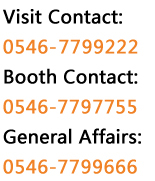How To Extend Tire Life
Air pressure must meet the standard
The driver should inflate the tires in accordance with the car manufacturer's regulations. The Auto Wheel Show believes that when the tire pressure is lower than the standard value, the tire shoulder wear increases sharply; when the tire pressure is higher than the standard value, the tire ground contact area decreases, and the unit pressure increases, resulting in an increase in the middle tire surface wear and an increase in tire wear. The stiffness increases the dynamic load on the steering wheel, which can easily cause the body to rupture.
Parking level
China Tire Trade Show recommends avoiding parking on rough, sharp stones. Do not park the vehicle near or come into contact with petroleum products, acids, and other materials that affect the deterioration of the rubber. The driver should not turn the steering wheel after parking. Such operations will accelerate tire wear.
Don't splash water
The tires are prone to overheating when driving for a long time or at high speed in summer, and the air pressure increases. At this time, stop dissipating heat. It is strictly forbidden to deflate or drop water to cool down to prevent abnormal aging of the tread rubber.Avoid sudden braking
Don't start too fast. Avoid frequent use of brakes and emergency brakes to prevent tires and ground from dragging and accelerating tire tread wear. When turning, passing, crossing crossroads, narrow roads, railway crossings, etc., you should master the appropriate speed, pay attention to the dynamics of roads, pedestrians, and vehicles, prepare for braking, reduce frequent braking, avoid emergency braking, and reduce tire wear. When facing broken glass or other unavoidable foreign objects, slow down and pass. Don't rush to the brakes, because fast braking will increase the pressure, and glass shards and foreign objects will get into the tires more easily.
Choose a good road
When driving in the road maintenance construction area, the road surface should be selected at a slow speed to avoid excessive tire collisions, or even punctures or scratches. When driving on uneven roads, be sure to choose roads to reduce tire impact and avoid damaging parts and tires. Second, slow down and avoid bumps and strong tire vibrations. In a muddy place, choose a solid, slippery place to avoid sagging tires, idling, and severe heat. The tires and sidewalls have severe cuts and scratches.
Car Tire
Check the spare tire regularly
In the maintenance and use of tires, don't forget one of the most important tires-spare tires. The spare tire is provided by the manufacturer, but it is often forgotten and lacks maintenance. It is recommended to check the spare tire regularly every 3 months and inflate it if necessary, so as not to find that the tire is flat when needed.
Focus on wear resistance
Most people don't know that, in fact, wear resistance is a basic indicator of tires. Unlike its size, load-carrying capacity, and speed rating, the tire shoulder is not marked with wear indicators. Unlike the other indicators above, it directly affects the installation or poses a direct threat to safety. However, interested car owners can learn about the wear resistance index of tire wear through the Internet or other channels, which can be used as a reference for you to choose durable tires.
Tire Maintenance
Check your tire pressure every 3,000 mi./4,500 km to keep your vehicle driving smoothly and evenly, and therefore use gas more efficiently.
NOTE: Tires should be inflated when cool to the vehicle manufacturer's recommendations printed on the vehicle door placard or in your vehicle's owner's manual, NOT the maximum limit stamped on a tire sidewall.
ㆍRotate your tires every 6,000—8,000 mi./10,000—13,000 km to help equalize treadwear.
ㆍGet your wheel alignment checked as specified in your vehicle's owner's manual, or as soon as you feel the wheel "pull."
ㆍVisually check your tires for irregularities in treadwear as these could indicate problems with alignment or inflation.
Tire Damage: How to Avoid It
ㆍDriving with an underinflated or overloaded tire causes the tire to develop excessive heat. This causes the tire's sidewall to flex excessively, resulting in higher operating temperatures and possible internal structural damage. All this could cause tire failure, leading to vehicle damage and/or personal injury.
ㆍTo avoid this, check your inflation regularly, and maintain the proper air pressure as listed on your driver's side door placard, or in your vehicle's owner's manual.
ㆍThe minimum basic warranty on radial auto and light truck tires provides free replacement, mounting, and balancing for tires that develop workmanship and material-related defects that may occur within the first 25% of usable treadwear, or for 12 months from the date of purchase, whichever comes first. So, it's important to remember this is available should it be necessary.
ㆍAlways get tires balanced when installed, as an unbalanced tire can cause early wear.





 Visit Contact
Visit Contact WeChat
WeChat

